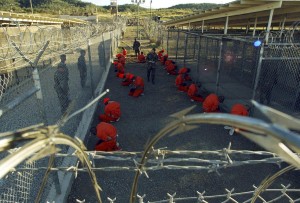I’ll admit that I’m very late in this discussion, but here goes anyway.
Guantanamo Bay — aka Gitmo — has been the subject of a lot of political discussion since it began housing terror suspects after the 9/11 attacks.
I’ve listened to the back-and-forth on all these years and am left to ponder: Why has this effort been so contentious?
President Obama said today he’s going to “change course” and move to close the detention center on the U.S. Navy base in Cuba before he leaves office. He wants to relocate the detainees to the United States.
It’s not that I fear bringing them here. They are being kept under serious lockdown at Gitmo. It’s safe to presume that whatever federal lockup gets them that they will be treated with the same seriousness.
Again, why the consternation over their detention at the military site?
The 9/11 attacks provoked a ferocious initial response from the U.S. military. It embarked on a mission to kill and/or capture as many terrorists as it could. Those who were captured were brought to Gitmo, which existed long before the terrorist attacks on D.C. and New York City.
There reportedly were abuses of prisoners at Gitmo. However, does the location of the alleged abuses matter? What if they had occurred at, say, Fort Leavenworth, Kan., where the military operates another hard-time lockup for military prisoners?
The suggestions by some foes of closing Gitmo that bringing them to the United States somehow puts Americans at increased risk doesn’t wash.
Still, the suggestions that we must close Gitmo because it somehow doesn’t comport with “American values” is equally nonsensical.
The individuals housed at Gitmo are seriously dangerous criminals who’ve been accused of committing acts of war against the United States of America. Whether they’re locked up at the island detention center or somewhere on U.S. soil doesn’t seem to matter one little bit.
Our Navy base is as secure as any of our installations.
Therefore, now that I’m awakened — finally — to this critical issue, someone will have to explain to me why it became so critical in the first place.
